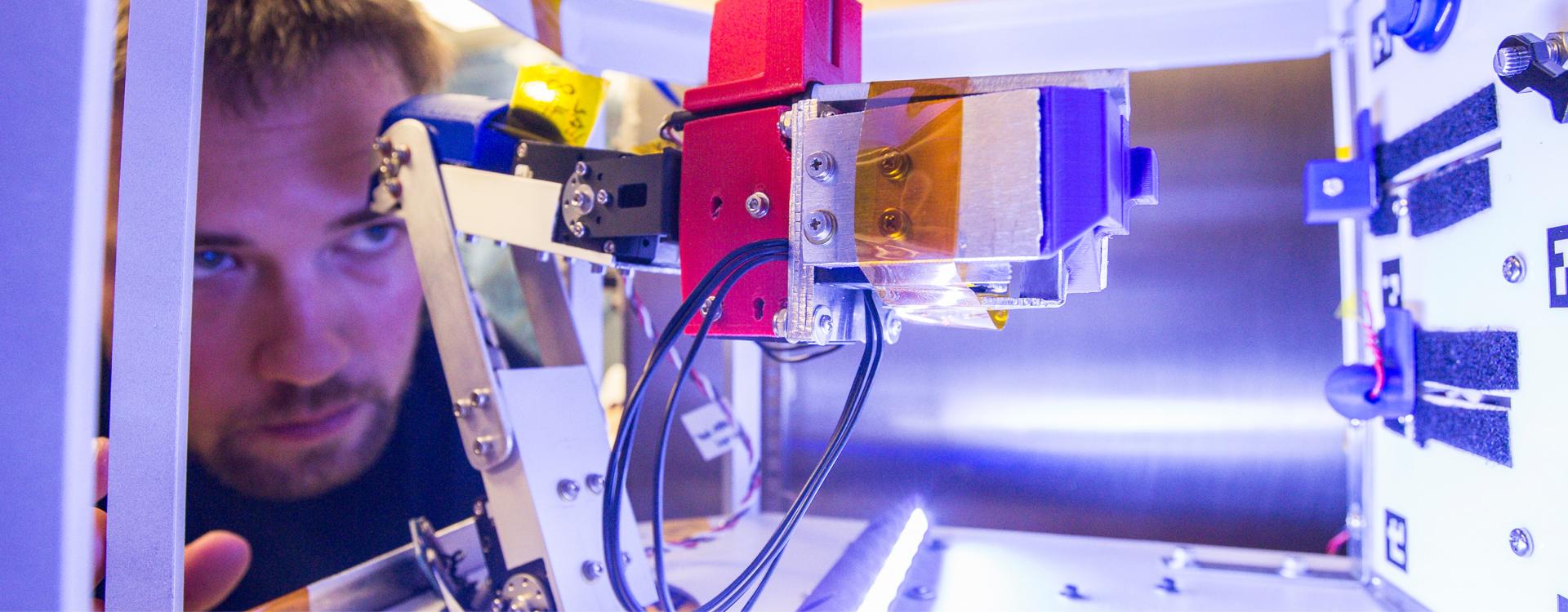Durham Tech’s Clinical Research Associate Program celebrates 25 years
Durham Tech’s 25th anniversary in April for the Clinical Trials Research Associate Program was a homecoming for those who launched the program as well as former students, and a celebration of current students and the program’s future.
The program trains individuals in assisting health care providers and researchers in initiating, administering, coordinating and managing clinical research studies for the development of new drugs, treatments and other health interventions.
Durham Tech President J.B. Buxton noted in opening remarks that Durham Tech was one of only two community colleges in the country to offer this type of program in 1998, and the only one in North Carolina, which it remains to this day.
“We need to point out the fact that our program is the one that those who came after turned to and said, ‘How did you do it?’” said Sharleen Traynor, director of the Clinical Trials Research program at the College. “We are a nationally recognized leader in this field. We serve as a model for other programs.”
Leading the way presented some challenges when Lee Ferrell, who worked for pediatric oncology at Duke, reached out to Durham Tech to inquire about creating such a program when she realized there were knowledge gaps that needed to be addressed.
Melissa Ockert, now dean of the Health and Wellness pathway at the College who came to Durham Tech as the second program director for Clinical Trials Research, had to create a curriculum that didn’t exist as the College blazed a trail in the field.
“We wouldn’t be here if it wasn’t for Dean Ockert’s hard work,” Traynor said. “The program would not still be here looking to expand if it weren't for Melissa Ockert.”
Ockert described the work that the program is designed around.
“You are not working directly with the patient, but you have a huge hand in their future well-being,” she said.
Traynor said the future is promising for the program. The program is looking at increasing diversity among participants to increase diversity in the workforce. The program currently has a partnership with the Duke Clinical and Translational Science Institute. Now in its third year, the Clinical Research Equity Scholars program allows Durham Tech students to work side-by-side Duke researchers in clinical trials.
Stephanie Freel, director of outreach and mentorship with Duke School of Medicine, said the Bloomberg-funded Early College that will be coming to Durham Tech in 2025 will provide a Critical Research Trials pathway for high school students.
Ashwini Roy-Chaudhury, director of Clinical Research Support and Operations, talked about UNC’s partnership with Durham Tech to extend training in clinical research to UNC undergraduates and newly hired research staff.
“There’s a lot of opportunity at UNC,” Roy-Chaudhury said. “We need to put the Durham Tech program up front and center, so everyone recognizes that it is an awesome program.”
Deirdre Brewton, a Clinical Research Trials program graduate who works at ICON, where she has been since leaving the College, said she has had the opportunity to travel for the company and earn a good living. She said the program changed the arc of her life. When she graduated from a four-year institution, she could not find a job without experience. Enrolling in the Durham Tech program changed that for her, she said. She, in turn, offered to help students attending the 25th anniversary celebration find jobs.
Sharia Warren, who graduated this month from the program, had already begun work before graduation as a clinical research coordinator at UNC.
“The value of clinical research cannot be overstated as it plays a crucial role in advancing medical knowledge and improving patients’ care,” she said. “Thanks to Durham Tech, I am well-equipped to make meaningful impact in an important field. I had caring teachers who are great educators. ...They guided supported and encouraged me, creating a positive learning environment that promotes learning and success.”
Clinical Trials Advisory Committee member Rob King, CEO of FHI 360, added that there is a shortage of qualified people in the field, and this program helps meet that need.
“This program has had a huge impact,” he said. “This industry offers more than a living wage. ... We have excellent benefits. ... I have the opportunity to travel all over the world. More importantly, we work toward the advancement in the treatment of the human condition. You can’t ask for a higher calling than that. At the end of the day, it’s about being a good human. This program allows us to be good humans.”

